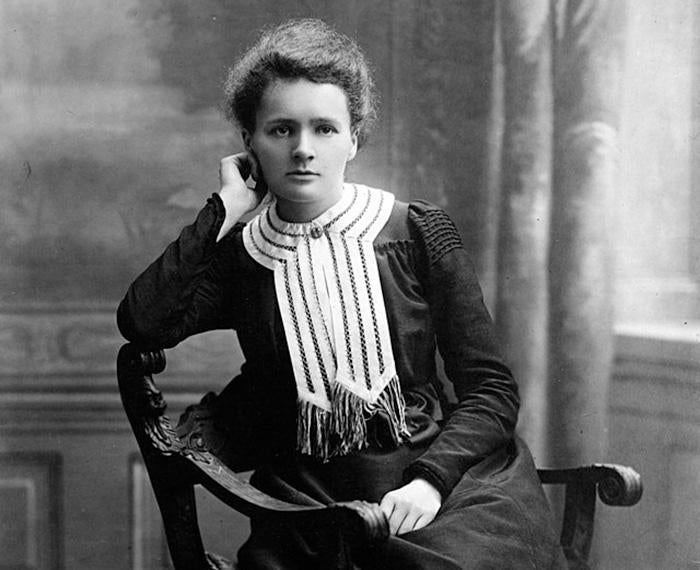
Subscribe to Pittwire Today
Get the most interesting and important stories from the University of Pittsburgh.A Curie-ous connection to Pitt

A century ago, Pitt played host to the world’s foremost female scientist. Marie Curie, who shared the 1903 Nobel Prize in Physics with her husband, Pierre Curie, for their research on radiation and who won the 1911 Nobel Prize in Chemistry for the discovery and study of the elements radium and polonium, visited Pittsburgh in May 1921.
Pitt Chancellor John Bowman conferred upon her a Doctor of Laws degree in a special convocation on May 26, 1921, at Soldiers & Sailors Memorial Hall & Museum.
But the University’s connection goes well beyond the honorary degree it bestowed on this pioneering woman in science.
Curie’s visit to the United States was arranged in connection with a nationwide fundraising effort to provide her with radium to advance her research.
President Warren Harding presented her with a symbolic gram of radium, a gift from the women of America, in a White House ceremony on May 20, 1921. At the time, one gram of the precious element was priced at $100,000—the equivalent of about $1.47 million today.
Former Pitt Chancellor W.J. Holland was involved in the fundraising effort. He chaired the Pittsburgh branch of the Marie Curie Radium Fund Committee.
Pitt innovation also figured prominently into the gift. The radium for Curie’s research was produced by the Pittsburgh-based Standard Chemical Company, where Pitt alumni Glenn Kammer and Henry Koenig supervised its production. (Read more about their role in the Pitt chemistry department’s venerable history in this Pitt Magazine feature.)
Their company, founded in 1913, was the nation’s first commercial producer of radium, and by 1920, Kammer and Koenig, both 1912 graduates of Pitt’s School of Chemistry, were supervising the production of more than two-thirds of the world’s radium.
Curie specifically requested to visit Standard Chemical’s labs in the Vanadium Building at Forbes and Meyran avenues (now the Parkvale Building) and its production facilities in Canonsburg, Pennsylvania, as part of her tour of the United States.
A plaque and a Pennsylvania Historical Marker stand outside Allen Hall on the University’s Pittsburgh campus in commemoration of Curie’s visit and the local contributions to her work.

